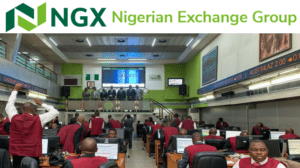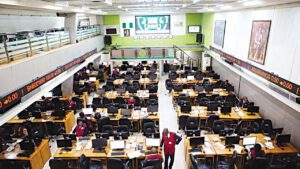Airtel Africa loses N676bn on trading — NGX Report
Aquoted telecommuni cations companies on the Nigerian Exchange Limited (NGX), Airtel Africa plc has reported N676 billion loss of investors on trading session.
The results showed that the telecom stock dipped by 10 per cent to close at N1,620 per share from N1,800.
The market sentiment for the telecom firm has remained very low amidst buy-interests and sell-offs, as bears dominated proceedings during the period under review following the build-up to the 2023 general election, interest rate hike, and rising inflation.
The NGX-All Share Index dropped by 1,203.09 basis points or 2.53 per cent to close at 46.365.95 index points from 47,569.04 points it close for previous trading day
However, the market breadth, closed positive as 14 gainers, led by PZ Cussons, which rose by 9.52 per cent to close at N9.20. On the flip side, there were 5 losers led by Airtel Africa Plc.
The Chairman of Hicap Securities Limited, Mr. David Adonri, said, “Right from the penultimate year to the elections, the socio-political atmosphere becomes charged. Politicians resort to violent rhetoric and divisive tactics, which deepens the country’s socio-political fault lines, to establish a competitive edge. During this period, the economy becomes overloaded with money arising from excessive election spending that spikes inflation.
“Historical antecedents indicate that on average, both equities and bonds show positive or negative performance in the penultimate year and immediately after the election. While the drama of general elections can make your imagination run wild, what you need to watch out for is how the unfolding scenario will affect the economy, the capital market, and your portfolio.
“It may be helpful to stick to a long-term strategy, which is longer than any election cycle, as returns in the capital market are made over a full business cycle, which may be longer than even one presidential term. For investors with a low-risk tolerance, the safety of bonds can douse their apprehensions.”
Adonri said when interest rate rises, investors tend to migrate to fixed-income securities.
“The hike is capable of migrating financial assets away from equities to fixed income; expect investors to sell down their shares in the near term. Both equities and fixed income operate on yield.
“With the increase in the interest rate, the yield in fixed income will be higher and investors will move there until the price of equities fall to be competitive with the debt market. If microeconomic improves and inflation starts dropping it will then favour the equity market and we will start seeing stabilization,” he explained.




